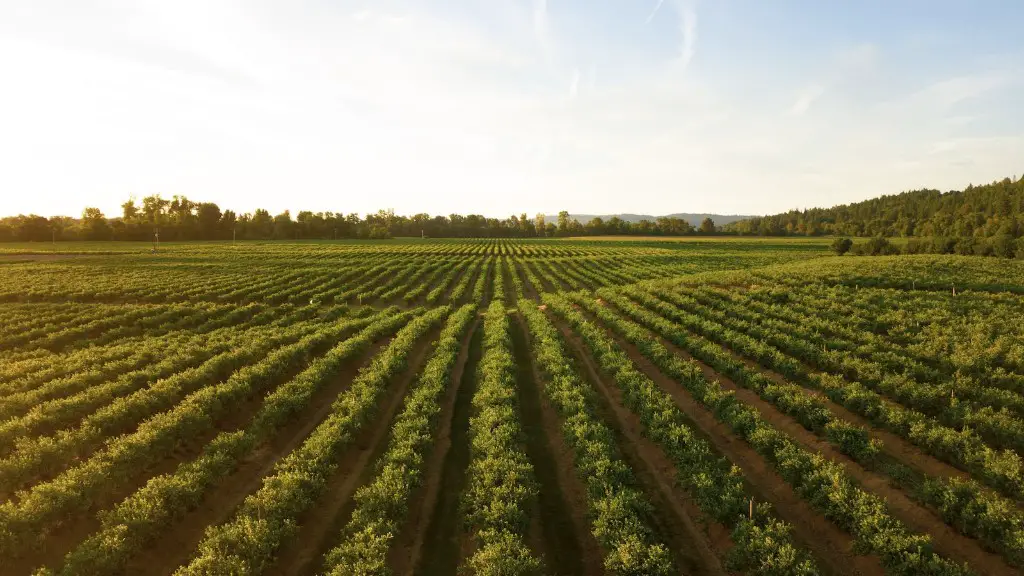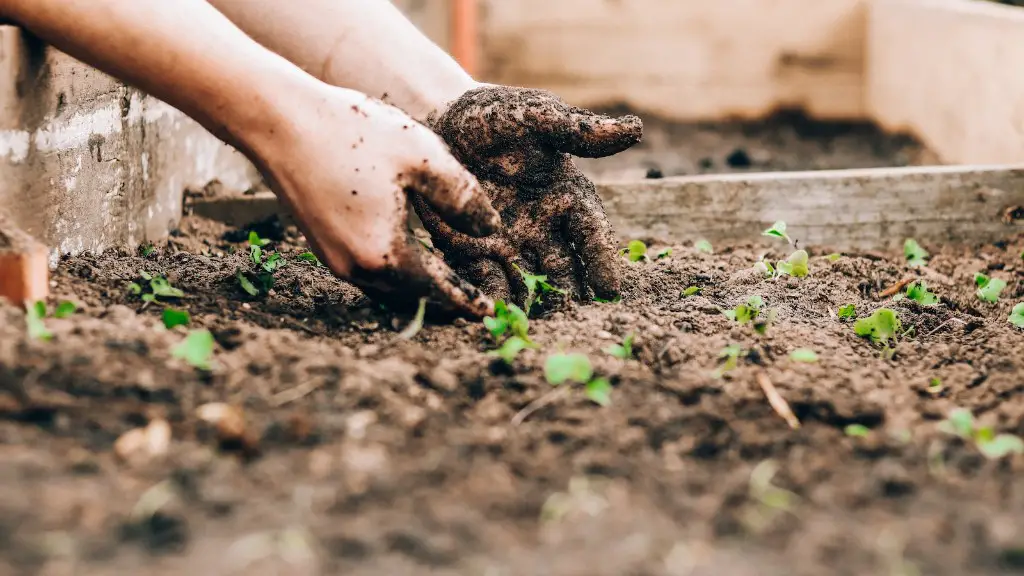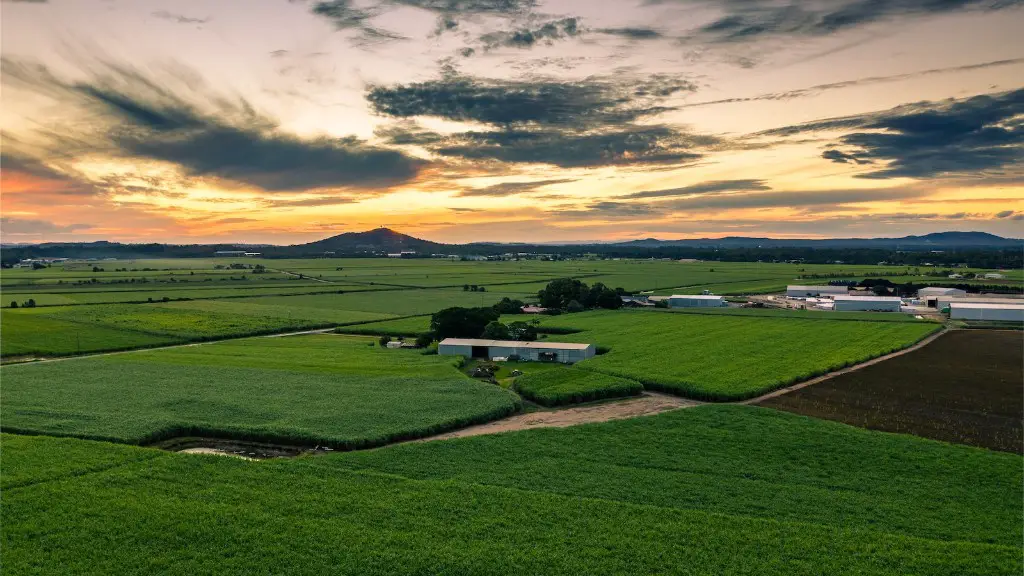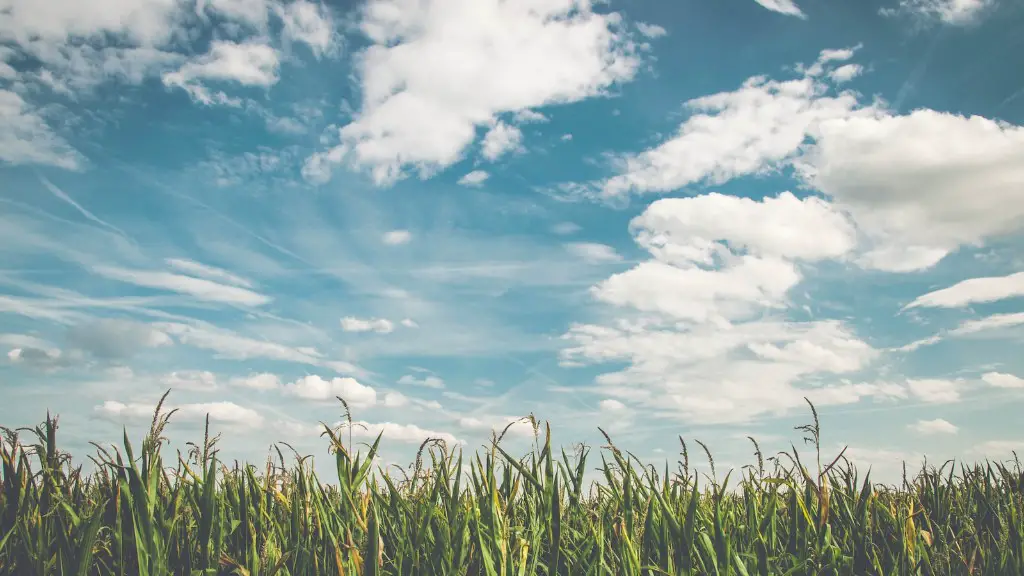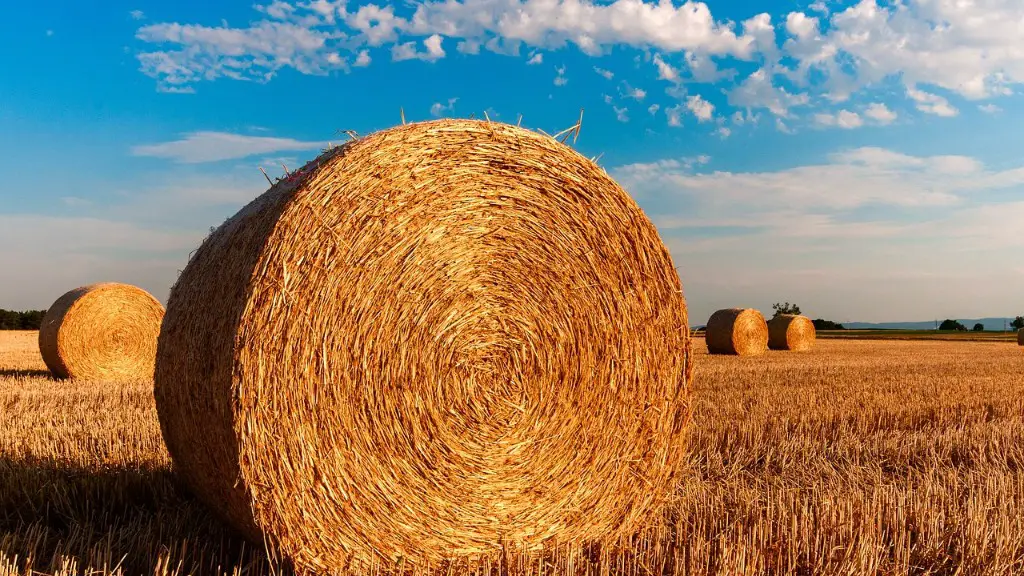Crop science is the study of how to grow crops more efficiently and with fewer inputs. It includes research on everything from plant breeding and genetics to crop management and soil science.
Crop science is the study of how to grow crops, including the study of how to improve crop yields, how to protect crops from pests and diseases, and how to select and bred new crop varieties.
What is crop science?
Crop science is a vital field of study that helps us to better understand how to produce food and other crops in a sustainable way. It investigates issues like resource use, processing and marketing of food products, and the challenges of producing food in a changing climate. By understanding these issues, we can develop more efficient and sustainable ways to produce crops, which is essential for feeding the growing population.
Agronomy is the science and technology of producing and using plants by agriculture for food, fuel, fiber, chemicals, recreation, or land conservation. It is the study of how to use plants for agricultural purposes. It covers a wide range of topics, from the study of the genetic makeup of plants to the study of how to manage crop pests.
Is crop science a good major
The Crop Sciences department at the University of Illinois is one of the best in the country. With a degree from this department, you will have endless opportunities to succeed. The demand for our students is high, and the future looks even more promising for well-trained scientists. Our graduates usually have two or more lucrative job opportunities waiting.
Crop agronomy is the science of how to grow plants, and Soil agronomy is the science of how soil is formed and how it affects plants. Crop agronomy is focused on the production of one type of plant, for example, corn. Soil agronomy is focused on how everything affects the soil, the largest living ecosystem on Earth.
What do you learn in Crop Science?
Crop Science is a four-year course under the Bachelor of Science in Agriculture program. The course includes basic agricultural courses such as soil science, genetics, plant breeding, plant physiology, cereals, and other elective subjects on plantation and ornamental crops.
Plant Sciences deals with the study of plants by gaining knowledge of plant morphology, biogeography, classification, histology (microscopic structure), physiology, and plant pathology. Crop Sciences study ways of improving crops and agricultural productivity while effectively managing pests.
What is the example of Crop Science?
Agriculture is the science and art of cultivating plants and rearing animals for human use. It includes the production of crops for food, fuel, and other purposes, and the raising of livestock for meat, dairy products, eggs, and other animal products.
Crop science is the study of economic plants, which are grown for food, fuel, and other purposes. It includes the breeding, genetics, and physiology of crops, as well as the management of their growth and production.
Animal husbandry is the science and art of raising animals for human use. It includes the breeding, genetics, and physiology of livestock, as well as the management of their growth and production.
Agricultural science is a high-choosing subject, but it is more challenging than other subjects, with one of the lowest rates of honours. In 2022, only 58% of 6218 candidates got an H1 in agricultural science. In 2021, the rate was around 11% and the average score was 72.
What is the best major in agriculture
The baccalaureate degree is the first level of university education and usually takes four years to complete. A student planning to pursue a career in agriculture has many degree options available to them. Depending on their interests, they could choose to study agroecology, food systems, environmental sciences/studies, biological sciences, international development, animal science, nutrition & food sciences, or dietetics, nutrition, and food sciences. All of these degrees offer a strong foundation for a career in agriculture.
There are many top careers in agriculture, but some of the most popular include agricultural engineers, agricultural economists, farm managers, soil and plant scientists, conservation planners, and commercial horticulturalists. Agricultural engineers work to develop new and improved ways to grow crops and raise animals. Agricultural economists study how agricultural production and marketing affect the economy. Farm managers oversee the day-to-day operations of farms. Soil and plant scientists conduct research on soil fertility, plant nutrition, and crop production. Conservation planners develop plans to protect and conserve natural resources. Commercial horticulturalists grow and sell plants and flowers.
Is agriculture hard or easy?
Agriculture majors definitely have their work cut out for them if they want to earn a bachelor’s degree. Although the major is not particularly hard, it is interdisciplinary and thus requires a lot of studying in order to do well. However, this is to be expected with any major, and agriculture majors should definitely be up for the challenge if they want to succeed.
If you go through an agricultural sciences degree, you’ll come out the other side with somewhere to start. It’s an exciting career path to take and you can choose from a variety of options such as food production, agronomy, biotechnology and livestock science. With an agricultural sciences degree, you’ll have the practical and theoretical knowledge to start a rewarding career in the agricultural industry.
Is an agronomy degree worth it
The job outlook for agronomists is expected to be strong in the coming years, with an anticipated growth of 5% between 2019 and 2029. This growth is faster than the average for all occupations, meaning agronomists can expect decent job security. Job prospects for graduating agronomists are expected to be plentiful and varied in the research and development field. Opportunities in academia and education may be more limited. However, those with a strong interest in teaching and research may be able to find positions in universities and colleges.
Agriculture is the perfect example of a STEM project. Science, Technology, Engineering, and Mathematics are all essential components of agriculture, making it a great subject for contextual learning. STEM projects in agriculture can help students learn about principles such as photosynthesis, food production, and soil science, while also teaching them important 21st century skills such as critical thinking, problem solving, and scientific literacy.
What are 3 types of crops?
Crops are plants that are grown for a specific purpose. They can be grown for food, feed, fiber, oil, ornamental, or industrial purposes. Food crops are grown for human consumption and include staples like wheat, rice, and corn. Feed crops are grown to be fed to animals and include hay, alfalfa, and oats. Fiber crops are grown for their fibers and include cotton and flax. Oil crops are grown for their oils and include soybeans and rapeseed. Ornamental crops are grown for their ornamental value and include flowers and trees. Industrial crops are grown for their industrial use and include crops like bamboo and jute.
A Bachelor of Science in Agriculture is typically a three or four-year course of study leading to a professional degree in agriculture. Many programs focus on the science and technology of agriculture and are closely associated with local industry. Some programs even maintain a micro-farm on-site for students.
Warp Up
Crop science is the study of the cultivation, growth, and production of crops. This includes the study of the genetic makeup of crops, their environmental requirements, and the management practices used to improve crop yields. Crop science also investigates the ways in which crops can be used for food, animal feed, fuel, and other purposes.
Crop science is the study of how to grow crops more effectively. It includes research on everything from the best way to plant and water crops, to the use of pesticides and fertilizers. Crop science has helped farmers increase crop yields and produce healthier food.
